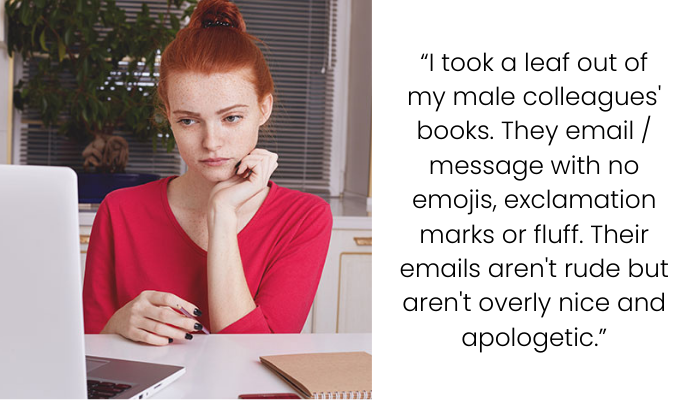When Professionalism Meets Bias: The Double Standard in Workplace Communication
In a corporate environment, a young professional woman sought to align her email communication style with that of her male colleagues, adopting a direct and concise tone devoid of emojis and excessive pleasantries. Despite mirroring the exact language used by her male counterparts—language that was deemed professional and effective—she was criticized for being “rude and disrespectful.” This incident underscores the persistent gender biases in workplace communication, where identical behaviors are interpreted differently based on the communicator’s gender.
Such disparities not only affect individual perceptions but also reflect broader systemic issues within organizational cultures. The expectation for women to maintain a friendly and accommodating demeanor, even in professional correspondence, perpetuates a double bind: be assertive and risk being labeled abrasive, or be agreeable and risk not being taken seriously.
Even in the most professional emails, employee’s personalities still shine through

Fearing that she wasn’t being professional enough, this woman changed her email style, for which she was called rude
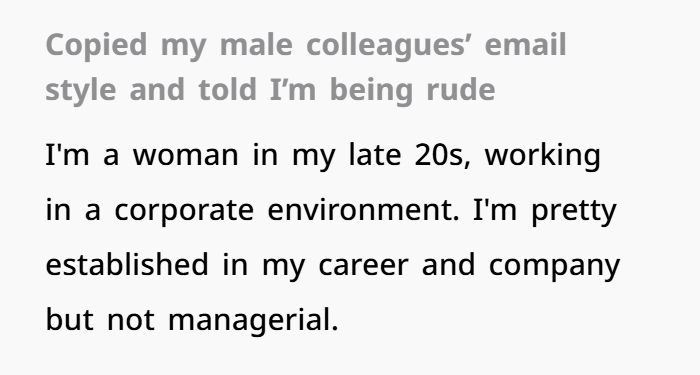
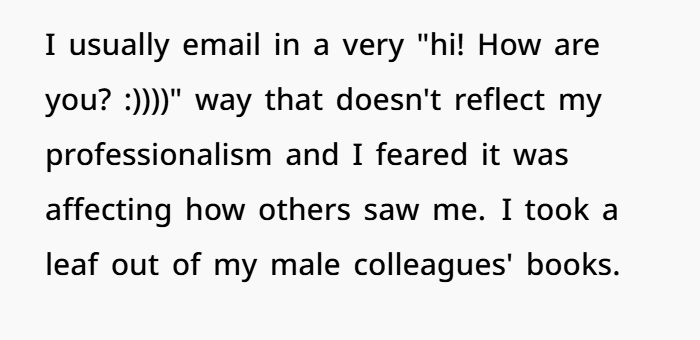
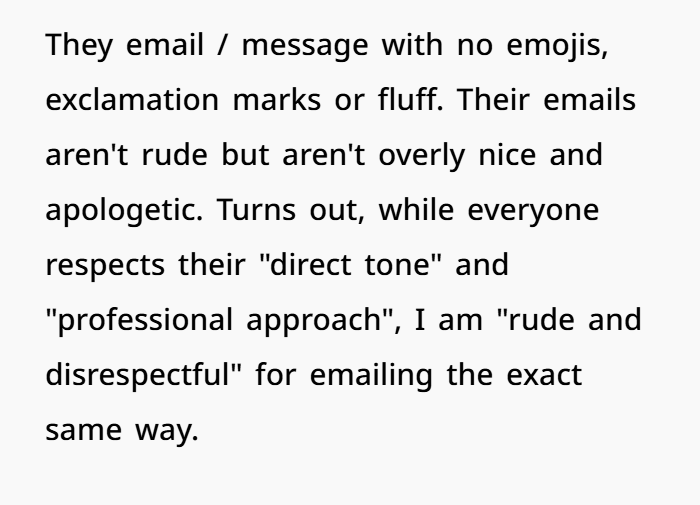
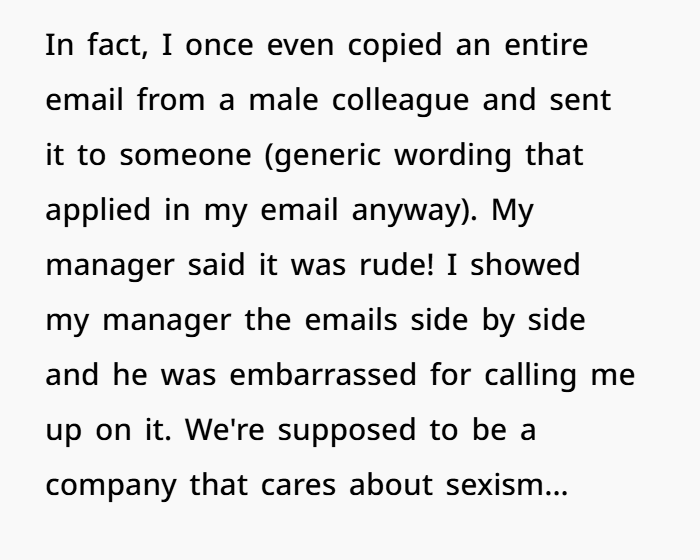

In the Reddit post titled “Copied my male colleagues’ email style and told I’m being rude,” a female professional in her late 20s shares her experience of adopting a more direct email communication style, similar to that of her male colleagues, only to be labeled as “rude and disrespectful.” Despite using identical language, her manager criticized her tone, highlighting a double standard in workplace communication expectations. This incident underscores the pervasive issue of gender bias in professional settings, where assertiveness in women is often misinterpreted as aggression, while the same behavior in men is deemed confident and professional.
Gendered Perceptions in Workplace Communication

The disparity in how direct communication is perceived based on gender is well-documented. Research indicates that women who exhibit assertiveness in professional settings are often penalized, facing negative evaluations and diminished career prospects. A study cited by Impact Group found that when women speak forcefully in the workplace, their perceived competency can drop by 35% . This bias stems from entrenched societal expectations that women should be nurturing and agreeable, leading to a double bind where deviating from these norms results in criticism.WikipediaNewsweek
Furthermore, linguistic analyses reveal that emails from women are often scrutinized more harshly than those from men, even when the content is identical. A study analyzing corporate email communications found significant gender biases in how language is interpreted, with women’s emails being more likely to be perceived as less authoritative . This suggests that the issue is not merely about communication style but also about deep-seated gender stereotypes influencing perception.
The Impact of Communication Bias on Women’s Careers
The consequences of these biases are profound, affecting women’s career trajectories and workplace experiences. A report from Textio revealed that about 76% of high-performing women received negative feedback from their bosses compared to just 2% of high-achieving men . Such disparities in feedback can hinder women’s professional growth, leading to decreased job satisfaction and higher turnover rates.Reddit

Moreover, the pressure to conform to gendered communication norms can be mentally taxing. Women often feel compelled to soften their language, use more exclamation points, and include pleasantries to avoid being perceived as rude. However, this can undermine their authority and lead to their contributions being undervalued. A study published in the journal Social Psychological and Personality Science found that including smiley faces in work emails may negatively impact how the sender is perceived, making them appear less competent .VICEft.comTime
Addressing Gender Bias in Workplace Communication
To combat these biases, organizations must actively work towards creating an inclusive environment that values diverse communication styles. Implementing bias interrupters, as advocated by Joan C. Williams, can be an effective strategy. These are data-driven tools designed to identify and mitigate bias in workplace processes .Wikipedia
Additionally, training programs focused on unconscious bias can raise awareness among employees and management about the subtle ways in which gender stereotypes influence perceptions. Encouraging open dialogues about communication styles and establishing clear, objective criteria for evaluating professionalism can also help reduce subjective judgments based on gendered expectations.
Readers applauded the woman for bringing up this issue with management
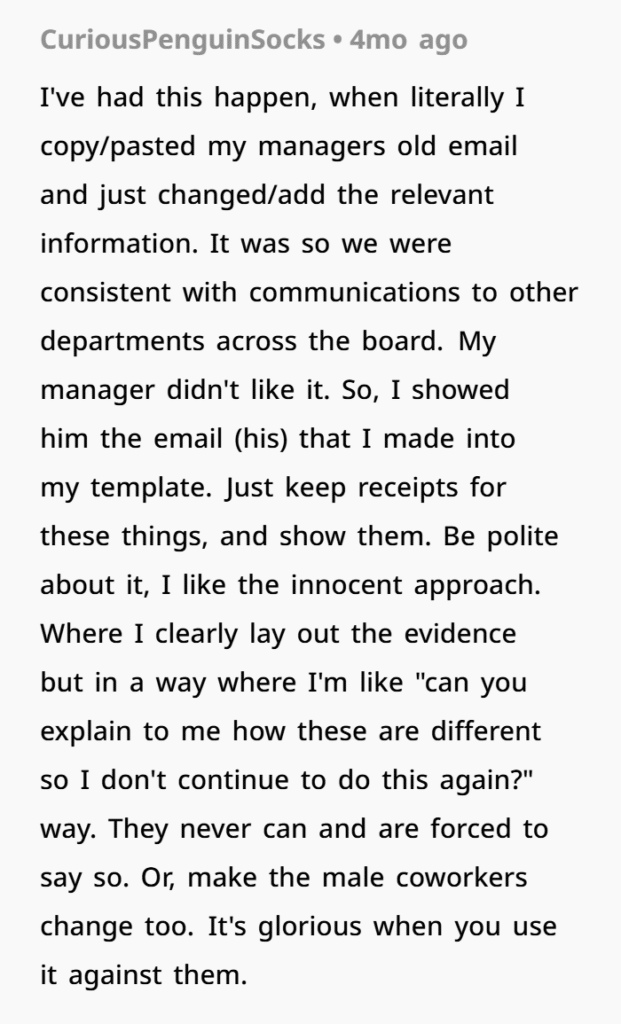

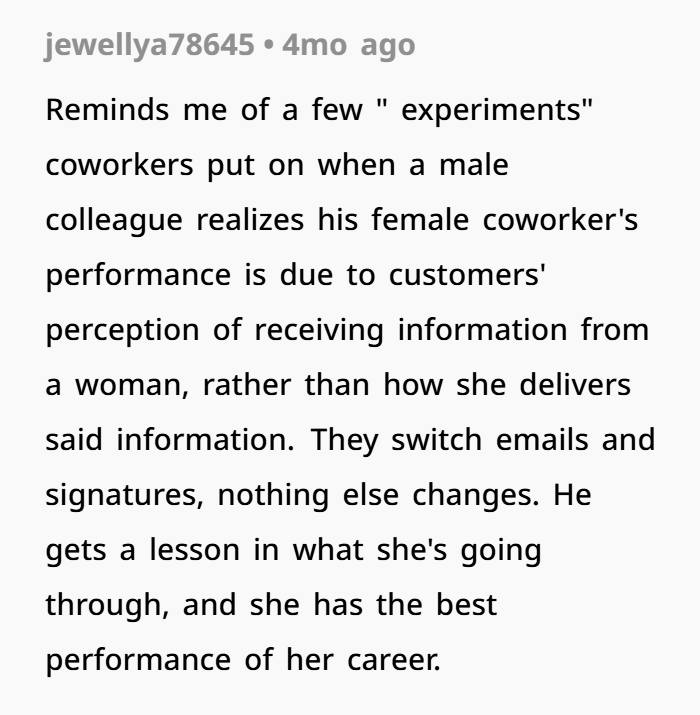
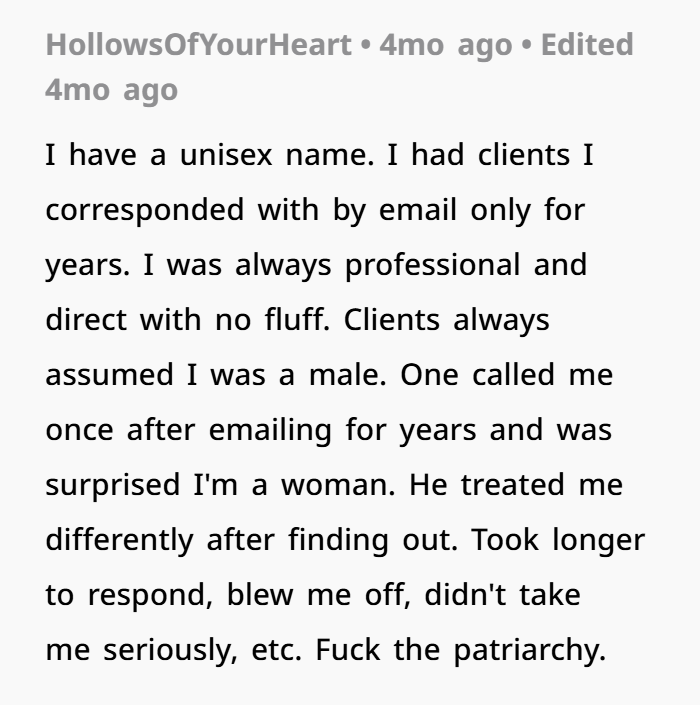
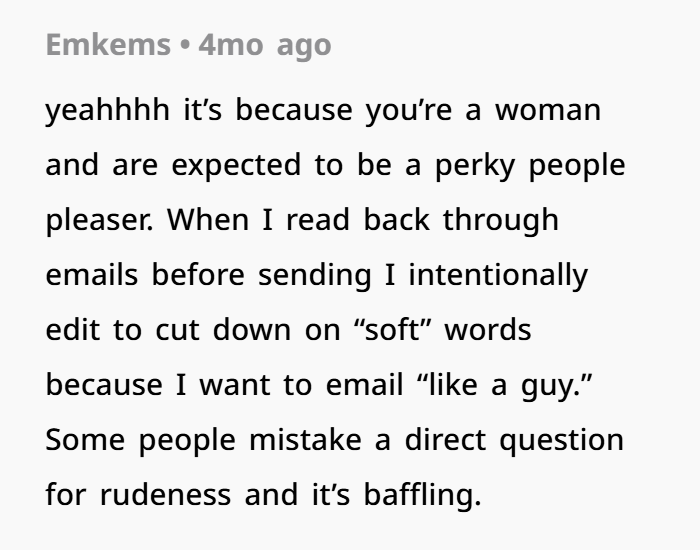

The Reddit user’s experience sheds light on the persistent gender biases in workplace communication. Despite adopting a communication style deemed professional when used by male colleagues, she faced criticism, highlighting the double standards women often navigate. Addressing these biases requires a concerted effort from organizations to recognize and challenge ingrained stereotypes, fostering a culture where all employees can communicate authentically without fear of misinterpretation or penalty.

